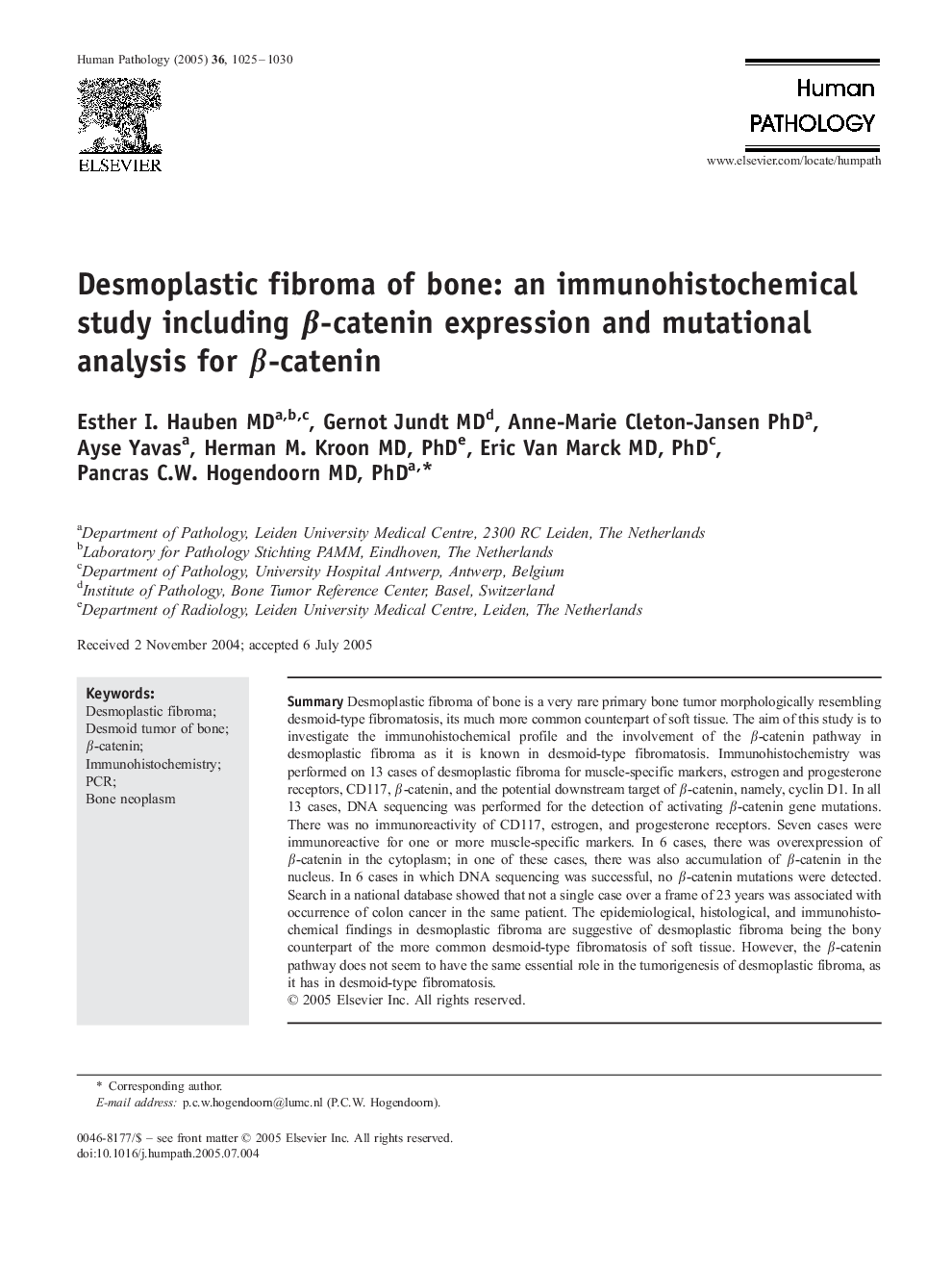| Article ID | Journal | Published Year | Pages | File Type |
|---|---|---|---|---|
| 9365286 | Human Pathology | 2005 | 6 Pages |
Abstract
Desmoplastic fibroma of bone is a very rare primary bone tumor morphologically resembling desmoid-type fibromatosis, its much more common counterpart of soft tissue. The aim of this study is to investigate the immunohistochemical profile and the involvement of the β-catenin pathway in desmoplastic fibroma as it is known in desmoid-type fibromatosis. Immunohistochemistry was performed on 13 cases of desmoplastic fibroma for muscle-specific markers, estrogen and progesterone receptors, CD117, β-catenin, and the potential downstream target of β-catenin, namely, cyclin D1. In all 13 cases, DNA sequencing was performed for the detection of activating β-catenin gene mutations. There was no immunoreactivity of CD117, estrogen, and progesterone receptors. Seven cases were immunoreactive for one or more muscle-specific markers. In 6 cases, there was overexpression of β-catenin in the cytoplasm; in one of these cases, there was also accumulation of β-catenin in the nucleus. In 6 cases in which DNA sequencing was successful, no β-catenin mutations were detected. Search in a national database showed that not a single case over a frame of 23 years was associated with occurrence of colon cancer in the same patient. The epidemiological, histological, and immunohistochemical findings in desmoplastic fibroma are suggestive of desmoplastic fibroma being the bony counterpart of the more common desmoid-type fibromatosis of soft tissue. However, the β-catenin pathway does not seem to have the same essential role in the tumorigenesis of desmoplastic fibroma, as it has in desmoid-type fibromatosis.
Related Topics
Health Sciences
Medicine and Dentistry
Pathology and Medical Technology
Authors
Esther I. MD, Gernot MD, Anne-Marie PhD, Ayse Yavas, Herman M. MD, PhD, Eric MD, PhD, Pancras C.W. MD, PhD,
